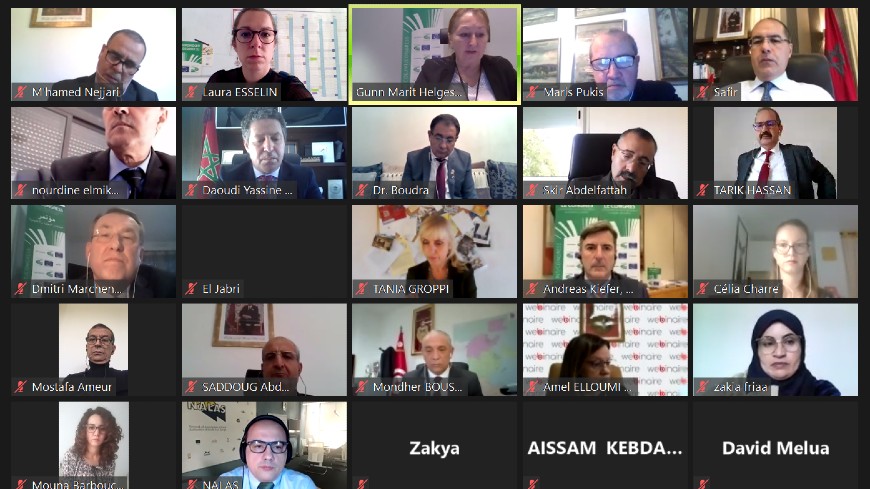On Tuesday 24 November 2020, the Congress organised a webinar on consultation mechanisms between central, local and regional authorities in the framework of the South-Med Partnership. This online event brought together Congress Vice-President Gunn Marit Helgesen (Norway, EPP/CCE) and Congress Secretary General ad interim, Andreas Kiefer, experts, representatives of national associations of local and regional authorities from both sides of the Mediterranean, as well as national authorities from the two Congress Partner for Local Democracy: Morocco and Tunisia.
Dialogue and consultation of territorial authorities by central authorities are key principles embodied in the European Charter of Local Self-Government. Indeed, as Andreas Kiefer recalled, "consultation is the only transversal principle which applies to all key provisions of the Charter and underpins all others" and whose modalities are defined by the "Guidelines on consultation" adopted by the Congress in 2018.
Tania Groppi, member of the Congress' Group of Independent Experts, underlined the importance of the link between successful decentralisation and consultation and the imperative of trust-based cooperation between the different levels of governance. Furthermore, "the health crisis has demonstrated the need to involve local and regional elected representatives in decision-making in order to achieve greater efficiency in the application of measures to counter the Covid-19 pandemic and its effects on our societies", said Gunn Marit Helgesen.
Representatives of governments and national associations of local and regional authorities from Morocco and Tunisia presented the efforts made and the obstacles to the development of dialogue and consultation in their respective countries, particularly in the specific context of the fight against the pandemic.
The online workshop continued with a round-table discussion with representatives of European associations of local authorities in order to identify good practices and specific advice that can be applied to the Moroccan and Tunisian contexts. Among the conclusions presented by the moderator of this session were the need to involve all actors, to cultivate trust and, for local authorities, to speak with a strong and unified voice.
This activity is part of the South-Med Partnership programme adopted by the Congress in 2017, the purpose of which is to support territorial reforms and strengthen decentralised governance in beneficiary neighbouring countries. This programme contributes to implementing the local and regional dimension of the Council of Europe policy towards neighbouring regions, in particular the Neighbourhood Partnerships with Morocco and with Tunisia (2018-2021). The activities organised in this framework benefit from financial support by Liechtenstein, Norway and Spain.




